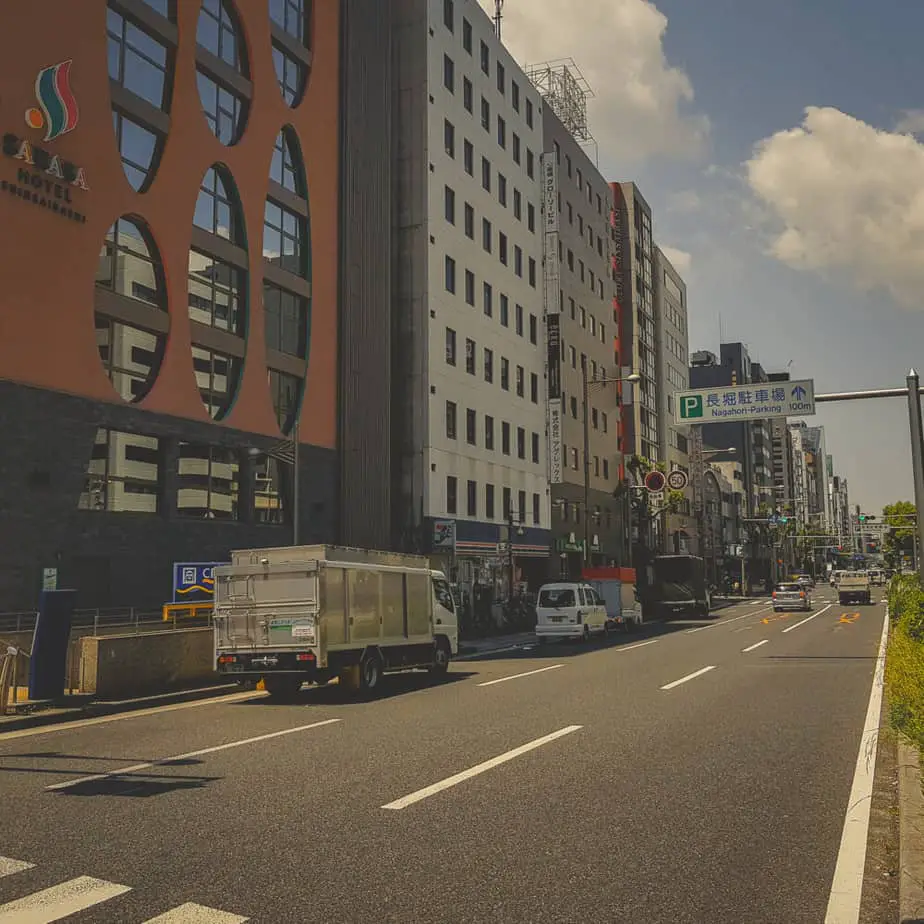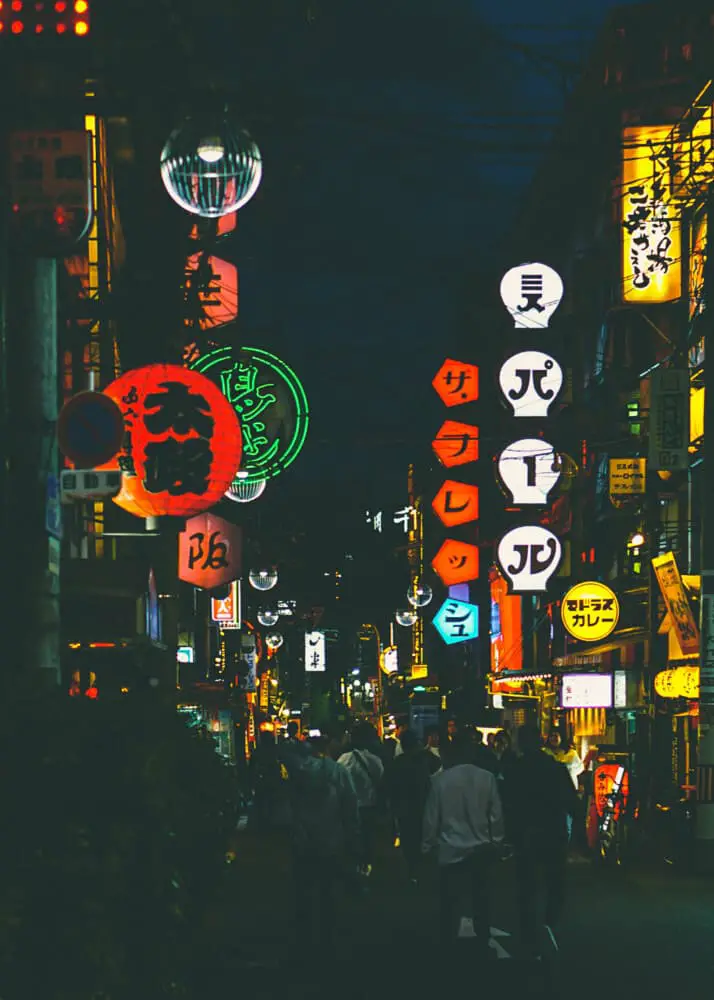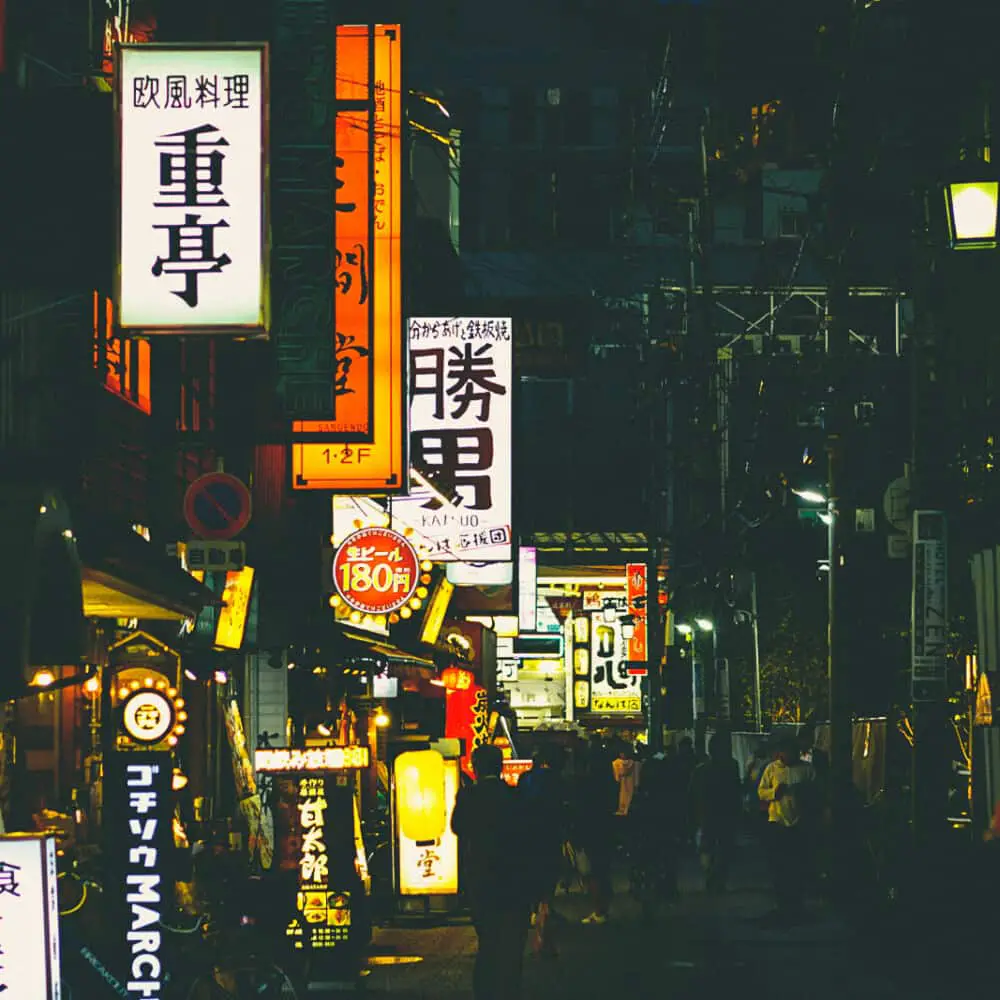Let me just preface this by saying, I’ve never actually felt unsafe in all of my time in Osaka. Even though Osaka has a reputation as being one of the most dangerous areas of Japan, you’re generally much safer there than most other cities in the world.
How safe is Osaka? Osaka is considered one of the safest cities in the world. Regularly ranking in the top 3 safest cities, both violent and petty crime rates are extremely low compared to many other countries. That being said, as with any busy city you should always be wary of pickpockets.
The overall best practice is to treat personal safety in Osaka just as you would while you’re at home. That way the likelihood of you running into trouble is minimal. No matter who tries to tell you differently, crime happens!
All of the tips in this post are based on my own experiences or the experience of my Japanese friends. While some will be generalized travel tips, others will be Osaka specific and all of them can be applied to Japan as a whole.
1. Be Extra Careful When You’re Crossing The Road
I’m totally serious. Number one warning.
I can’t count the number of times I’ve almost seen disaster strike.
What looks like a zebra crossing in most other countries seems to work completely differently in Japan. Jaywalking is frowned upon in such a rule-abiding society so always double check for the green light to cross… But realize that a lot of Japanese drivers don’t stop or slow down for crossings without traffic lights.
A study of over 10,000 vehicles by the Japan Automobile Federation found that over 90% of drivers do not stop or slow down for pedestrians! source
But don’t worry too much… The bigger crossings in major parts of the city all have traffic lights and I’m sure anyone reading this post has the ability to cross the road.
You can do it!
It just seems worth highlighting as it was news to me and quite a few of my friends on our first times in Japan!

2. Avoid Shinsekai Alone At Night
Shinsekai is widely considered the roughest part of Osaka.
Maybe this point also applies to more areas of the city but as one of the poorest areas in the whole of Japan, lots of Japanese people won’t even visit Shinsekai during the day time.
Prostitutes are apparently common in the area and I’ve been told there are a lot of homeless people and a higher concentration of crime compared to the rest of the city.
All that being said, I adore this area in the daytime for its unique style and affordable abundance of kushikatsu restaurants. On the surface, compared to the cities I’m used to in the UK, Shinsekai in Osaka still feels safe to me as a foreigner in Japan.
A pro tip to escape conflict at night anywhere in the world without breaking any laws is to carry a bright flashlight. There’s nothing quite like a super bright light in the dark to disorientate someone who could potentially cause you harm. Just remember to run after dazzling the unsavory soul. I recommend getting this ultra-bright flashlight on Amazon and keeping it in your bag where you can grab it quickly if you’re walking alone in a strange city at night!
3. Keep Your Bags Where You Can See Them In Busy Areas
I was amazed at first by how many Japanese people wear their backpacks in front of them on trains.
It’s something I never really saw in any other city and although on the surface its main purpose is to not be a nuisance to others, it would be really easy for someone to open your bag on a crowded train.
During rush hour, over 210,000 people go through Umeda station daily. That’s a lot of hands! source
It’s not uncommon to see people wearing their backpacks frontwards in Shinsaibashi or Namba during peak times either, and while I can’t say it’s essential it’s always good to be wary and stay vigilant.
4. Download An App For Earthquake Alerts
I must admit, this was never a priority of mine (I just relied on my partner’s) but realizing their importance could be life-saving for you and anyone else around you.
The Safety Tips app was developed by the Japan Tourism Agency and gives early earthquake and tsunami warnings. The languages available include English, Japanese, and a few others. It also includes an evacuation flowchart highlighting what to do should you be unlucky enough to experience a disaster, along with some handy communication cards that I sincerely hope you’ll never need to use!
Yurukeru Call is probably the most popular app for earthquake alerts in Japan, but the notifications will scare you more than any quake you’re likely to experience in your time here. 9/10 the shock awakening by the app will give you new gray hairs. That’s my excuse anyways!
Apps like these are not perfect by any means and often overestimate the size of the earthquake or have false alarms… Also, depending on your personality type they might actually stress you out more than they help you. If that’s the case then I apologize if you found out about them through reading this. Oops.
While there are local sirens and TV alerts if the area is in danger, it’s always better to be safe than sorry and getting an app like Safety Tips is a good choice!
5. Ignore Any Sketchy Approaches
At some point during your time in Japan, if you’re in any major city, you’ll be approached by people that make you feel a little uncomfortable. This applies to men as well.
That cute, kind lady in the street probably isn’t interested in giving you the massage of your dreams. Who knows? Maybe she is. But don’t risk it.
If you’re not in Japanese company, do not follow anybody you don’t know to their bar. In fact, even if you are with someone Japanese don’t do it unless you can verify it’s safe (via Google reviews, friends etc).
Drink spiking and scams do exist in Japan. With it being so easy for most people to avoid them, just politely walk by and carry on with your day/night. If they speak English, tell them you’re busy. Just. Don’t. Follow.

6. Don’t Get Into Any Fights
This applies to everyone. Unless it’s absolutely necessary like you or somebody else is going to get seriously hurt if you don’t step in and do something… Don’t fight. Don’t fight back. Don’t be the hero. Don’t get drunk and start any fights. Do everything within your power to remove yourself from the situation.
I can’t emphasize strongly enough that as advanced as Japan is, it’s completely out of touch on this one. Maybe it has something to do with the general low crime so it’s easy to point the finger but…
If, as a foreigner you get into any fight or physical altercation in Japan, the police will almost ALWAYS put the blame on you.
There have been times when my “gaijin” friends have felt the need to protect others for reasons I won’t get into, but it never ends well no matter how right your actions might be.
7. Always Carry Your Passport
Something that isn’t made super clear to travelers visiting Japan is this.
You need to carry your passport at all times.
If you’re worried about having your passport stolen then you should weigh up whether the TINY chance of that happening outweighs jail time.
It sounds totally crazy (and it probably is) but depending on how nice the police officer is who decides to interrupt your lovely day, you could actually end up in jail for not carrying your passport.
You can probably get away with carrying a photocopy of it or keep a photo of the passport on your phone, but personally, I just bring mine everywhere to avoid any trouble.
The funny thing is, I’ve never actually been searched by police in Japan but you can guarantee the day I forget to carry it, lightning will strike.
Bonus Tip
Always carry cash. Even today, Japan is a cash-based society and the further away from the popular areas like Namba, Shinsaibashi, or Umeda you are… The less likely it is that you can pay by debit/credit card.
This is true for anything ranging from cafes and restaurants to anything that’s not a chain supermarket or convenience store.
You’re probably always going to be safe in places like Family Mart, 7-Eleven, or Dotour but don’t be confident that you can pay by card anywhere else. Unless that place is McDonald’s.
Your safest bet to withdraw cash is going to be 7-Bank. You’ll find them in most 7-Eleven stores and any foreigners I know (myself included) rely on them when in Japan.
If you’re interested in finding out my camera recommendations (even if you just want to know what to avoid if you think my photos are bad) then check out my post here.
To Conclude
I hope reading this hasn’t put anyone off the idea of visiting Osaka.
It’s a fantastic city and one that’s very close to my heart. You can experience so much in Japan’s Kitchen that it might just become your favorite city too.
If you do end up checking out Osaka, I hope you have a great time.
Stay safe,
JKC

